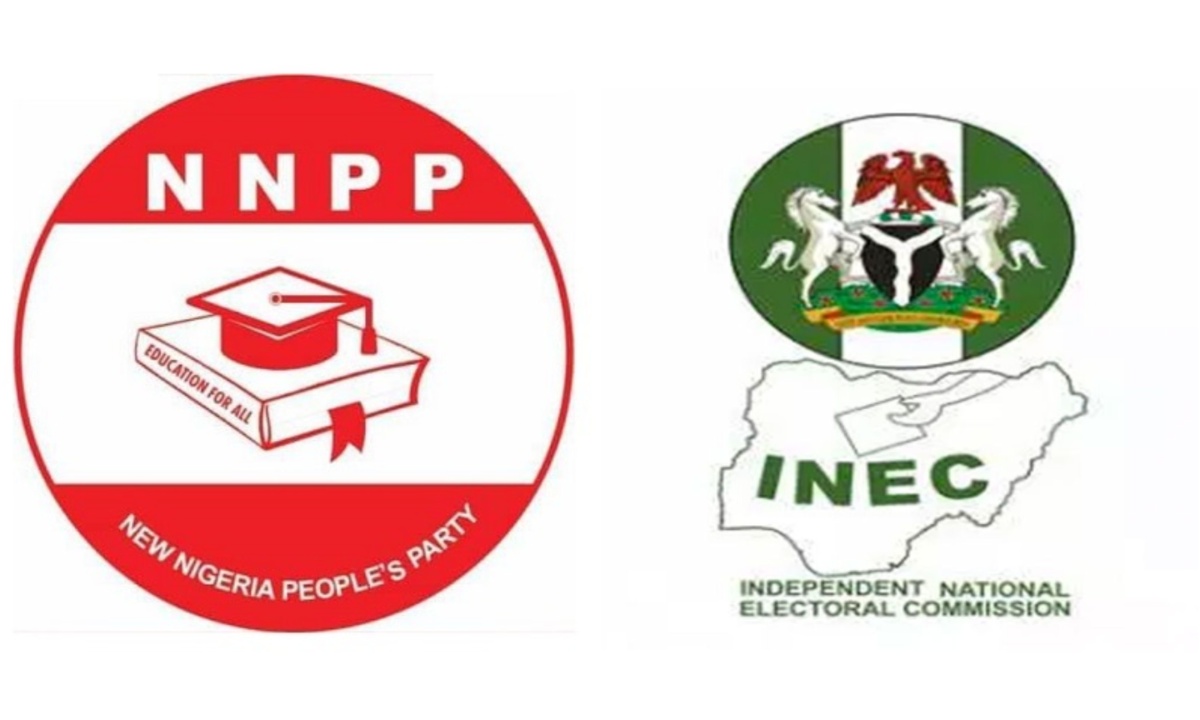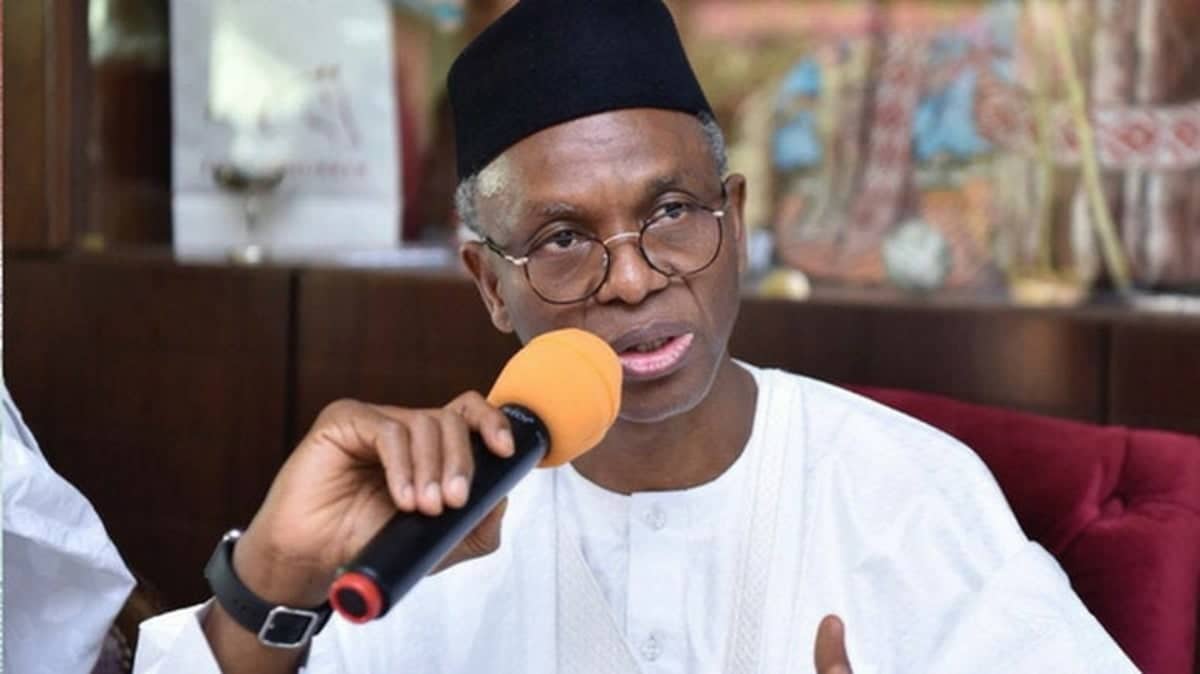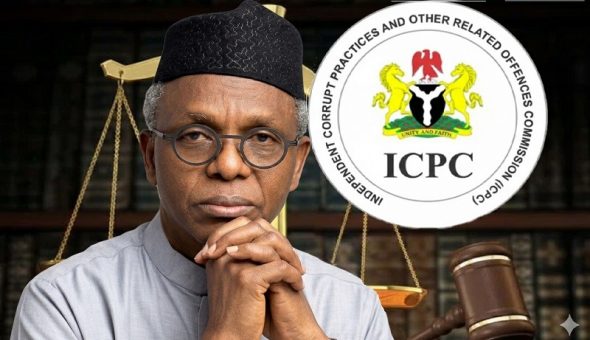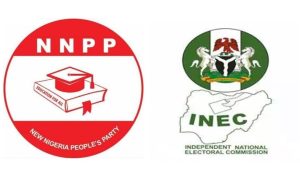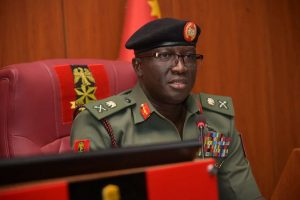NNPC Apologises To Nigerians Over Bad Fuel, Long Queues
The Nigerian National Petroleum Company (NNPC) Limited, has apologised to Nigerians over the importation of the off-spec PMS.
The group managing director of NNPC Ltd, Mele Kyari, who tendered the apology when he appeared before the House of Representatives Committee on Petroleum Downstream, said the situation was completely unavoidable as the problem was not envisaged.
He, however, gave assurance that the distribution of petrol would nomalise in the weeks ahead.
“We regret this situation. It is completely unavoidable; we didn’t see it coming. We apologise to Nigerians. We didn’t see this coming,” he said.
Kyari disclosed that before the end of the month, about 2.1 billion litres of the product would have been injected into the system.
“I am assuring more supply plan. 2.1bn litres by the end of this month. We have enough supply. We will normalise distribution. We will contain this development,” he said.
Kyari, who gave a background to the ongoing scarcity, he blamed the situation of the cargo with the high methanol content.
According to him, the withdrawal of the five cargoes created a shortfall in product supply. He however noted that the company had imported a quantity that will close the gap and restore adequate supply.
He, however, explained that the NNPC Ltd had been in a business agreement with all importers and it was a specific requirement that fuel blended with a high quantity of methanol should not be brought into the country.
Earlier, the chairman of the committee, Abdullahi Mahmoud had told the NNPC to be up and doing in its responsibilities.
He said what happened had placed Nigerians in a very difficult situation adding that the country and its people are paying the price for a seemingly deliberate failure.
Some members of the community who expressed their anger said despite NNPC’s explanation and measures to tackle the situation, anybody who neglected his responsibilities must be held responsible.
Meanwhile, the Peoples Democratic Party (PDP) has challenged the All Progressives Congress (APC)-led administration to expose culprits responsible for circulation of toxic fuel, just as it said moves to withdraw N201 billion for cleaning up the poisonous fuel is a ploy to siphon money from the national coffers.
PDP also said the APC-led administration is pushing Nigerians to take to the streets in protest against its continued arrogance, alleged corruption, insensitivity to the feelings of the people as well as alleged shielding of those who imported toxic fuel into the country.
PDP national publicity secretary, Debo Ologunagba, said it is saddening that the APC administration has continued to turn deaf ears to the cries by Nigerians, just as he expressed shock that the NNPC Ltd is seeking an estimated N201 billion to clean up the adulterated fuel.
Ologunagba in a statement said, “It is clear that this is another ploy by officials of the APC administration to continue to pilfer the national treasury to fund APC’s rigging plans ahead of the 2023 elections as well as to finance the wasteful lifestyles of its leaders to the detriment of other Nigerians.
“Such move by the APC to further fleece the nation amounts to pushing the already exasperated citizens to the wall. The APC government would have nobody but itself to blame over the possible consequences of its continued impunity, insensitivity and disregard to the feelings of Nigerians.
“It is instructive to note that the APC has remained unyielding since our party demanded an investigation into allegations that APC leaders connived with some foreign interests to import very cheap heavily contaminated fuel laden with methanol in their desperation to corruptly raise billions of naira to fund APC’s plots to rig the 2023 general elections.
“Nigerians can recall that our party, well-meaning Nigerians and organisations had exposed and challenged APC’s plot to siphon N2.557 trillion padded as fuel subsidy for 2022. Having been so exposed, the APC resorted to fleecing Nigerians through importation of toxic fuel and now seeks to fritter N201 billion under the guise of cleaning up the adulterated fuel.”
PDP added that the failure of the APC administration to set up an independent commission of enquiry on the “APC Toxic Fuel ImportGate” to ascertain the individuals involved in the deal who undertook the pre-inspection and how much was paid for very cheap contaminated fuel, is fast putting the nation on edge.
“The only way to douse the tension is for the APC administration to heed to demands by Nigerians and expose APC leaders allegedly involved in the importation of the toxic fuel, get them to pay compensation particularly to those whose vehicles and equipment were damaged by the bad fuel as well as bear the cost of the said cleanup.”
The PDP however called for the immediate sack of the minister of state for petroleum resources, Timipre Sylva, for misleading Nigerians and concealing critical information at the onset of this saga, having refused and failed as a public official with duty to Nigerians when he said on national TV that he could not name persons involved in the fraud.”
The PDP also urged President Buhari to hands off responsibilities as minister of petroleum resources and allow competent professionals to man the ministry in order to restore sanity in the system.
“This is because the headship of the Petroleum Ministry as presently constituted is peopled with persons with no relevant education, experience and expertise to manage this critical sector that accounts for over 90 percent of the revenue of the nation,” the party said
Also yesterday, the International Monetary Fund (IMF) said the non-oil sector of the Nigerian economy could be stronger, benefitting from its recent growth momentum, higher production from the new Dangote Refinery, and supportive credit policies.
In its executive board 2021 Article IV consultation with Nigeria which was released recently, IMF said Nigeria’s ratification of the African Continental Free Trade Agreement (AfCFTA) could also yield a positive boost to the non-oil sector while oil production could rebound, supported by the more generous terms of the Petroleum Industry Act.
Nigeria exited recession in the fourth quarter of 2020 and its output rose by 4.1 per cent (y-o-y) in the third quarter, with broad-based growth except for the oil sector, which is facing security and technical challenges.
While growth was projected at 3 per cent for 2021, it stated that headline inflation rose sharply during the pandemic, reaching a peak of 18.2 per cent year-on-year (y-o-y) in March 2021, but has since declined to 15.6 per cent in December.
The institution attributed this to the new harvest season and opening of land borders, although it noted that the reported unemployment rates (end of 2020) had yet to come down. It, however, confirmed that more recent COVID-19 monthly surveys have shown that employment was back at its pre-pandemic level.
“Despite the recovery in oil prices, the general government fiscal deficit is projected to widen in 2021 to 5.9 per cent of GDP, reflecting implicit fuel subsidies and higher security spending,” the Fund said, adding that the consolidated government revenue-to-GDP ratio at 7.5 per cent remains among the lowest in the world.
“After registering a historic deficit in 2020, the current account improved in 2021, and gross FX reserves have improved, supported by the IMF’s SDR allocation and Eurobond placements in September 2021.
“Notwithstanding the authorities’ proactive approach to contain COVID-19 infection rates and fatalities and the recent growth improvement, socio-economic conditions remain a challenge. Levels of food insecurity have risen, and the poverty rate is estimated to have risen during the pandemic.”
The directors highlighted the urgency of fiscal consolidation to create policy space and reduce debt sustainability risks and called for significant domestic revenue mobilisation.
They said Nigeria’s exchange rate reforms should be accompanied by macroeconomic policies to contain inflation, structural reforms to improve transparency and governance, and clear communications regarding exchange rate policy.
“Directors considered it appropriate to maintain a supportive monetary policy in the near term, with continued vigilance against inflation and balance of payments risks. They encouraged the authorities to stand ready to adjust the monetary stance if inflationary pressures increase,” the consultation noted.
“Directors recommended strengthening the monetary operational framework over the medium term – focusing on the primacy of price stability – and scaling back the central bank’s quasi-fiscal operations. Directors welcomed the resilience of the banking sector and the planned expiration of pandemic-related support measures.
“They agreed that while the newly launched eNaira could help foster financial inclusion and improve the delivery of social assistance, close monitoring of associated risks will be important,” the IMF added.
Meanwhile, operatives of the Nigeria Security and Civil Defence Corps (NSCDC) in Kwara State yesterday arrested scores of fuel black marketers in Ilorin, the state capital.
They also seized an unspecified number of kegs containing fuel from the black marketers.
The state’s NSCDC commandant, Iskil Makinde, made the arrest of the black marketers public after an on-the-spot assessment visits to some filling stations in Ilorin.
Makinde said his men discovered that while some filling stations were hoarding fuel, others were selling at N250 per litre.
He warned that, henceforth, the corps will deal ruthlessly with filling stations hoarding fuel and creating artificial scarcity of the product in the state.
“The NSCDC task force led by the head of the anti-vandal unit, ACC Ayinde Yusuf discovered that some filling stations had the products but refused to sell while some were selling the product for as high as N250 per litre against the recommended price of N165.
“Those that have the products but chose to hoard it were ordered to start selling, and our teams ensured they emptied their fuel dump before they left the place.
“Also, some were caught selling above the normal price and were asked to revert to the recommended N165,” Makinde stated.
Kaduna residents have continued to face tough times in search of petrol with black marketers selling the commodity for N700/litre.
Our correspondent who went round Kaduna metropolis reported that black marketers with jerry-cans positioned themselves in some locations within the metropolis, selling the commodity to motorists at exorbitant prices.
The long queues in some fueling stations continued as many stations were under lock and key.
It was observed further that few fueling stations with the fuel were selling a litre at N220/N230 to motorists.
Meanwhile, transport fares have risen, with drivers lamenting the scarcity of fuel.
One of the drivers at Command Junction motor park, Television, Ayuba Silas, said: “Now it is N3,000 per passenger from Kaduna to Abuja against N2,500. This fuel scarcity is a serious problem to us commercial drivers. Government should do something urgently.”
Residents of Akure, the Ondo state capital were on Wednesday morning stranded following the fuel scarcity which has made many petrol marketers shut down their stations.
Makesense Promotion’s correspondent who went round the state capital observed that civil servants and others that wanted to catch a bus or taxi to their various offices could not as few commercial vehicles were operating, with most of them queued up at filling stations.
It was observed that most of the filling stations that opened for business were selling from only one or two pumps, prolonging the misery of motorists.
Some of the vehicles had been at the filling stations as early as 5am as long queues were observed along Ondo Road, Cathedral and Arakale, Oba-Adesida roads among others.
Many major bus stops were filled with passengers begging few private vehicles plying major roads for free rides.
Some residents who spoke to Makesense Promotions lamented the suffering being added to the economic challenge they had been facing before.
They called on the federal government to address what they described as an unfortunate development before it gets out of hand.
Fuel scarcity is gradually biting hard in Damaturu and other parts of Yobe State with the resurfacing of long queues in filling stations where the product is available.
Checks by Makesense Promotions revealed that many petrol stations within the metropolis have remained closed over lack of product.
In few other stations where it was available, motorists waited endlessly to get fuel.
Mamman Mohammed, a taxi driver who after spending about five hours, lamented buying a litre of petrol at the cost of N185.
“We do not know what is happening in this country and nobody is saying anything concerning the fuel scarcity”, he lamented.
He appealed to the federal government and other relevant stakeholders in the petroleum industry to come to the aid of ordinary Nigerians who depend on petrol for their daily bread.
Another resident, Abubakar Gujja said he had been in the queue at the NNPC Mega station since morning and eventually got the product at about 11am at the regulated price.
“We don’t know the cause of the scarcity. We just discovered queues in petrol stations since last week; the queue has continued since then,” Abubakar Gujja, a resident, said.
Another taxi driver, Musa Gulani, said, “Let me tell you, I bought a gallon of 5 litres of petrol at N1,200.
“We cannot continue like this; something urgent needs to be done”, he appealed.
Reports indicate that some petrol stations in other parts of the state sell the product at N200 per litre.

